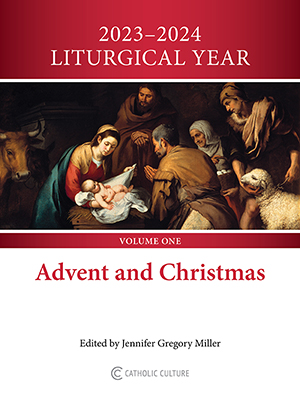Speaking about the unspeakable
By Phil Lawler ( bio - articles - email ) | Sep 23, 2008
One of today's CWN News Briefs relates that YouTube has blocked a video criticizing Barack Obama's position on abortion. The video included an image of an aborted baby; apparently YouTube felt that image was too gruesome to be shown.
The image is indeed gruesome-- but only because the reality is gruesome. And this illustrates one of the major problems that we face in fighting the Culture of Death. Some people insist on doing unspeakable things, and then insisting that we should not speak about them.
It sounds so much nicer to speak about "choice" or "reproductive freedom." But the reality behind those sterile words is the bloody carcass of a tiny unborn child. We are sternly enjoined not to be emotional, not to be sensational, not to say things that might offend people. But if the debate is entirely unemotional we are likely to lose. In fact, if it is entirely unemotional we deserve to lose, because it is inhuman to be unemotional about the death of innocent children.
There are similar constraints placed upon us when we argue against pornography. I vividly recall a TV show from years ago, with a condescending host laughing at the pro-family activist who advocated banning a particular song from the radio airwaves-- until that activist began reciting the words of the song, and the host, outraged, asked how he could dare to use such foul language on a broadcast! You see the problem? We are asked to argue against... something... but we aren't allowed to explain exactly what that thing is. An accurate description would shock and disgust the audience, and we can't do that.
So we ask the audience to take it on faith that the reality is shocking and disgusting, and our opponents in the debate suavely assure everyone that it isn't really so shocking. We aren't allowed to put the issue to the test.
Or take the issue of homosexuality. Our children are being told every day-- by their teachers, perhaps; by the media, certainly-- that homosexuals are just like the rest of us: nice people, fun people, just a little different in one way... But they are never given a description of the particular act characteristic of homosexuality: the act that defines homosexuals as such. That would be distasteful. So children are asked to pass judgment-- favorably-- on a class of people without understanding how that class is constituted.
Now please understand. I am not-- repeat, not-- suggesting that impressionable children should be exposed to every lurid detail of every sexual conduct. I do not recommend assaulting the senses, attempting to shock our audience at every turn. That approach, I am convinced, plays into the hands of our adversaries.
But if we cannot speak about the unspeakable, how can we convince our neighbors? I'd welcome your thoughts.
All comments are moderated. To lighten our editing burden, only current donors are allowed to Sound Off. If you are a current donor, log in to see the comment form; otherwise please support our work, and Sound Off!









